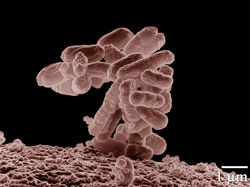Intranasal 'flu vaccines
Human trials for highly infective agents like avian 'flu need to be carefully monitored and controlled. A clinical trial under the auspices of the European MUCADJ project was conducted at the University of Leicester, England. All of the 84 volunteers were carefully monitored for possible side-effects. Air courier was used to deliver blood and secretion samples the same day for cell-mediated immunity monitoring. A clinical database in Amsterdam was used to record the data and produce a full clinical study report. Vaccines were applied, both intranasally for the experimental group and intramuscularly in the control volunteers. The 'flu virus is notorious for the development of new strains. Consequently combinations of different strains were tested including avian and swine 'flu variants. Vaccines were applied using a non-toxic enterotoxin as an adjuvant. An adjuvant is an agent that modifies the action of another agent and is used to enhance the immune action of the vaccine. Results were both encouraging and informative inasmuch as they provided a base for amendments to current vaccination strategies. Most notably, a trivalent vaccine produced a systemic response against the swine 'flu (virus A) and influenza strain B, albeit a reduced response. There were two main recommendations. Firstly, for effective immunisation against avian 'flu, H5N3, it was suggested that a stronger adjuvant be used, probably another E. coli mutant. Also, cell-mediated immunity studies suggested that there should be a longer period between the two immunisatons to allow the development of immunological memory. The vaccinology in this project has real potential in the development of safe, efficacious vaccines against important diseases. Mucosal vaccinology and parenteral (needle-free) vaccination generally are areas of great potential for pain and discomfort free application.



